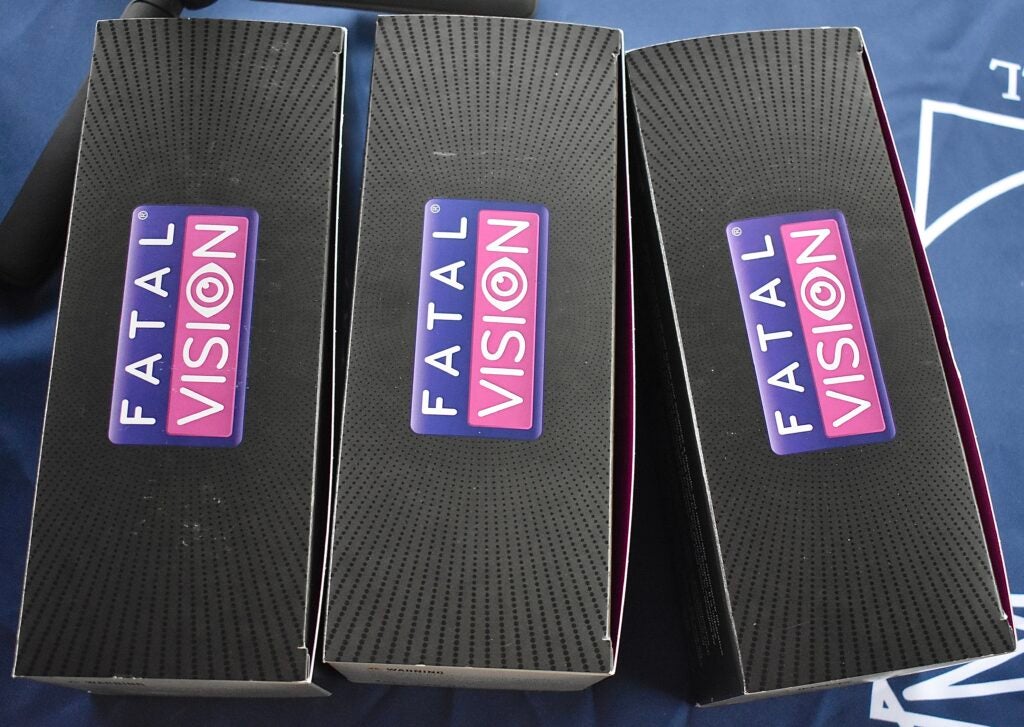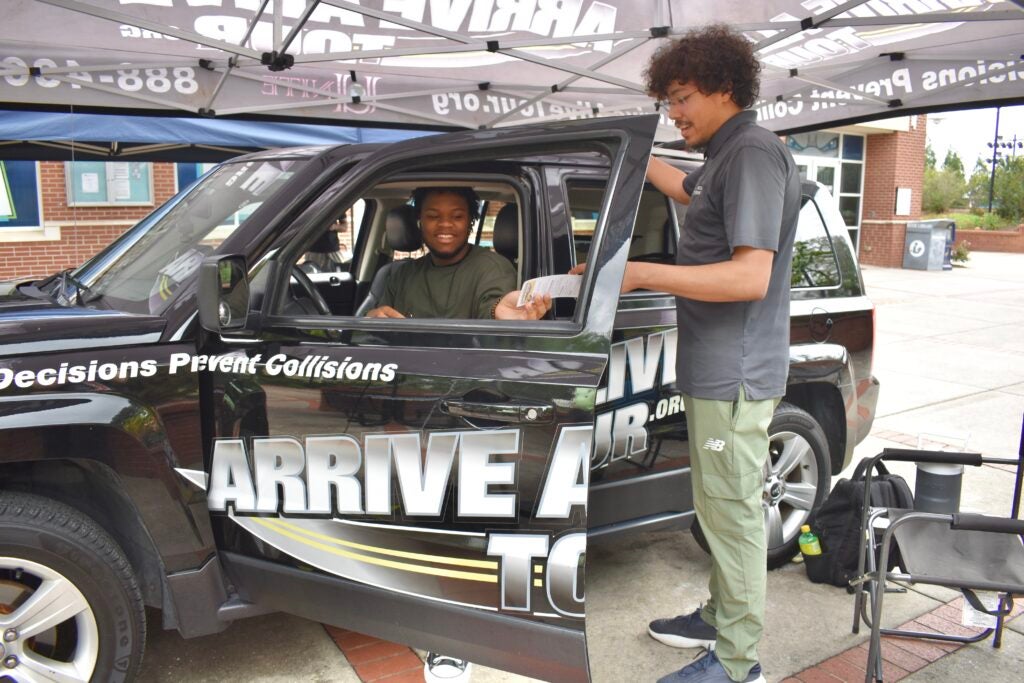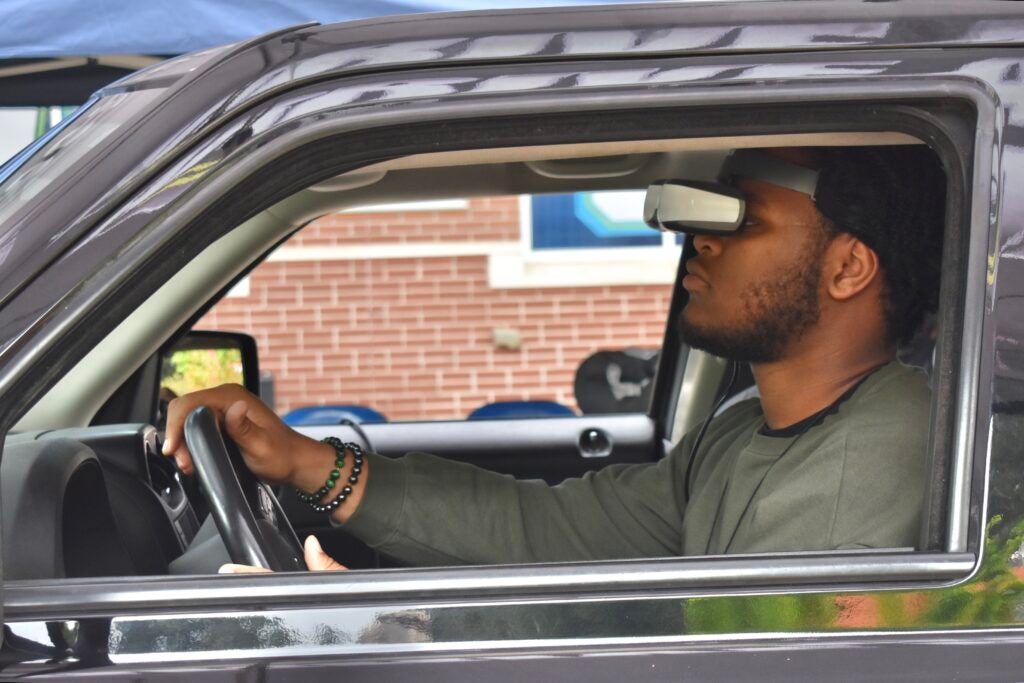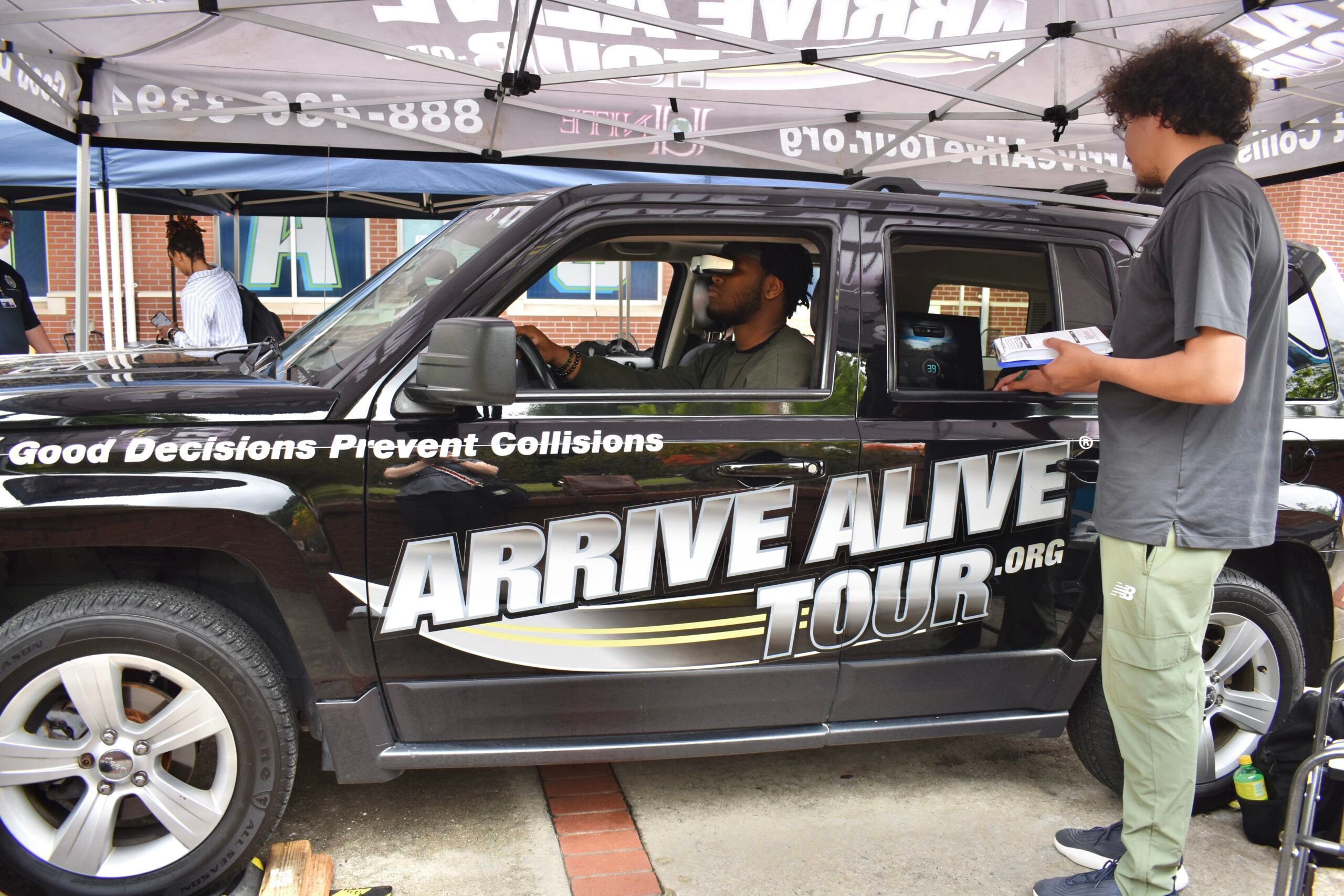Augusta University students participated in a high-tech simulator on Wednesday afternoon, April 3, to learn the dangers of driving while under the influence.
Partnering with the Arrive Alive Tour, a nationally recognized program, the university challenged students with a hands-on experience to consider the impact of driving distracted or inebriated.
Using state-of-the-art technology, such as impact video, tire sensory pads, a VR headset and more, AU students tried to ace a DUI simulator on Summerville Campus to gauge whether or not they could truly handle drunk driving.
“We hope for it to be a deterrent,“ Arrive Alive Tour representative Jalen Burress said. “We hope for it to be fun, but at the same time we want students to take away that it’s very difficult to operate a vehicle if you’re impaired or distracted by a phone.”
To Burress, college students can benefit the most from learning the dangers of impaired driving, as many begin dipping their toes into legal drinking and attending parties.

“This simulator has undertones of a videogame, but hopefully it makes them think, ‘wow, if I ever find myself in that situation, I’d definitely call a friend or an Uber,’ and that could save many lives,” he said. “That’s always the goal.”
Aiming to educate the young public on the dangers of impaired driving, Burress said he has witnessed firsthand how the simulator quickly taught students the harsh realities of getting behind the wheel without good judgment.
“It’s meant to be tough. They’ll get in and we see people immediately crash within the first 30 seconds, and then they’ll get frustrated and want to do it again,” he said.
For parents who want to teach their children the importance of safe driving, Burress suggested creating open dialogue and establishing trust, while reminding students of possible devastating consequences.
“Reiterate to them, ‘if you’re ever in this position, call us,’” he said. “It’s better to get chewed out by your parents than get a $10,000 DUI or potentially hurting yourself or someone else.”

Assisting with the event, AU police Lt. Jimmy Laird said he wanted to help with the “cool” simulator because it encouraged positive relationship building with students, in addition to warning them against unsafe driving.
“We want to have that positive engagement with the public, where we can educate them on the dangers of driving under the influence of alcohol and drugs,” he said. “Let them see what it’s like in a virtual reality versus the real world, so hopefully we can prevent accidents.”
For Laird, it is always better for a student to call one of AU’s officers rather than risking a final journey behind the wheel.
“I’d always rather them give us a call,” he said. “We have officers that conduct traffic stops, and occasionally they do stop drivers who are under the influence, and – depending on their assessment – they can make the determination for what the outcome will be between an arrest, a traffic citation or calling them a safe ride home.”
With his experience in the field and interacting with students, Laird said he believes more education against distracted or impaired driving is heavily needed for all ages, as many family members and young drivers are lost in preventable accidents every year.
“Unfortunately, in today’s day and age, I don’t feel like the education component is out there or advertised as much as it should be,” he said. “We need to start teaching them in high school and middle school … we see a lot of drivers texting and driving too.”

Participating sophomore student Jamal Bogan said he thought the simulator was a great experience because he felt it accurately allowed him to see things from an inebriated point of view.
“I’ve never personally been that drunk before … but it’s really easy to overcorrect. A lot of things were blurred and you really don’t have the same point of view that you normally do,” he said. “But this was definitely a good experience. I know I won’t be getting into a car drunk after that.”
From past interactions with other young adults, Bogan said he believes many fellow students easily underestimate the effect of alcohol and other substances, especially when it comes to driving.
“As a college student, you hear a lot of people who don’t put enough emphasis on it and haphazardly talk about drunk driving,” he said.
To those who often risk driving a car distracted or under the influence, Bogan said he hoped in the future people would learn to put others first, if not themselves.
“They really need to put more value in their life and on other people’s lives. Just take the simple act of asking someone else to drive you home or call you an Uber – you can get your car in the morning,” he said. “It’s not worth it enough to risk your life or someone else’s by driving drunk.”











